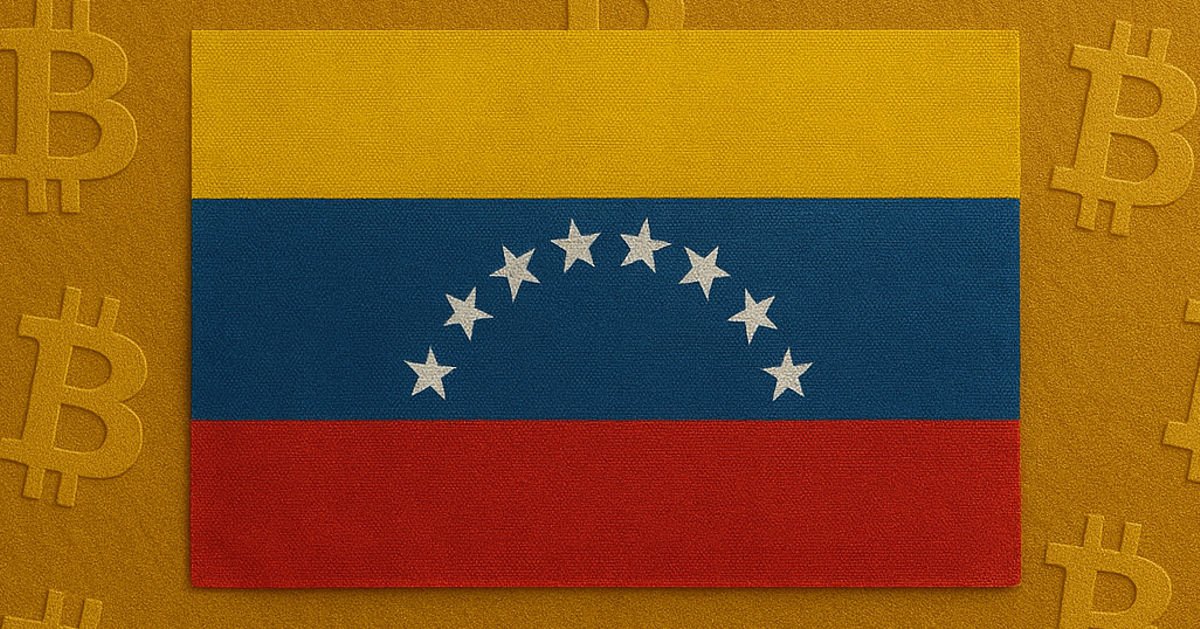Venezuelan opposition leader María Corina Machado has been awarded the 2025 Nobel Peace Prize, recognized for what the Norwegian Nobel Committee called her “tireless work in promoting the democratic rights of the Venezuelan people.”
But for many in the Bitcoin community, the victory has another meaning, because Machado is not just a democracy activist. He is also one of the few (but growing) global political figures who has openly embraced Bitcoin as a tool of resistance against authoritarianism.
The Nobel Committee described Machado, 58, as “a woman keeping the flame of democracy burning amidst growing darkness.”
It’s a description that fits not only his fight against the current regime, but also his broader vision of how technology – and decentralized money – can empower citizens when governments fail them.
“I’m in shock,” Machado said after the announcement. “I’m just one person. I certainly don’t deserve this.”
“I dedicate this award to the suffering people of Venezuela and to President Trump for his decisive support of our cause,” he wrote on X.
An award for courage and permanence
Machado’s political story is one of persistence under threat. Barred from running in last year’s presidential election – which international observers widely dismissed as rigged – she was forced into hiding but refused to leave Venezuela.
The Nobel Committee praised her as “a key and unifying figure in a brutal and authoritarian state that is now suffering a humanitarian and economic crisis.”
That crisis is something Machado has long tried to explain in global forums: Venezuela’s economic collapse, he argues, was not an accident but a predictable result of financial repression and state control of money.
And this is where his views directly intersect with Bitcoin.
Machado: Bitcoin is a lifeline
In an interview first broadcast by Bitcoin Magazine Last year, Machado spoke at length about Venezuela’s economic collapse and the role Bitcoin played in helping citizens survive.
“The Venezuelan bolívar has lost 14 zeros,” he said, recalling how inflation once reached 1.7 million percent. “This financial repression – rooted in state-sponsored looting, theft and uncontrolled money printing – has destroyed our economy despite our vast oil wealth.”
For many Venezuelans, Bitcoin has become the only alternative. It allowed families to store value outside the collapsing Bolivar, receive remittances without confiscation, and even finance their escapes from the country.
Machado called Bitcoin a “lifeline” for Venezuelans, a way to get around government-controlled exchange rates. He has proposed including Bitcoin in Venezuela’s future national reserves as the country seeks to recover stolen wealth and rebuild from the dictatorship.
Machado also proposed including Bitcoin in Venezuela’s future national reserves as part of the country’s post-dictatorship recovery.
“We envision Bitcoin as part of our national reserves, helping to rebuild what the dictatorship stole,” he said Bitcoin Magazine.
Machado’s emphasis on transparency echoes one of Bitcoin’s core principles: a public ledger that is incorruptible by definition. It is an idea that resonates with freedom and justice.
